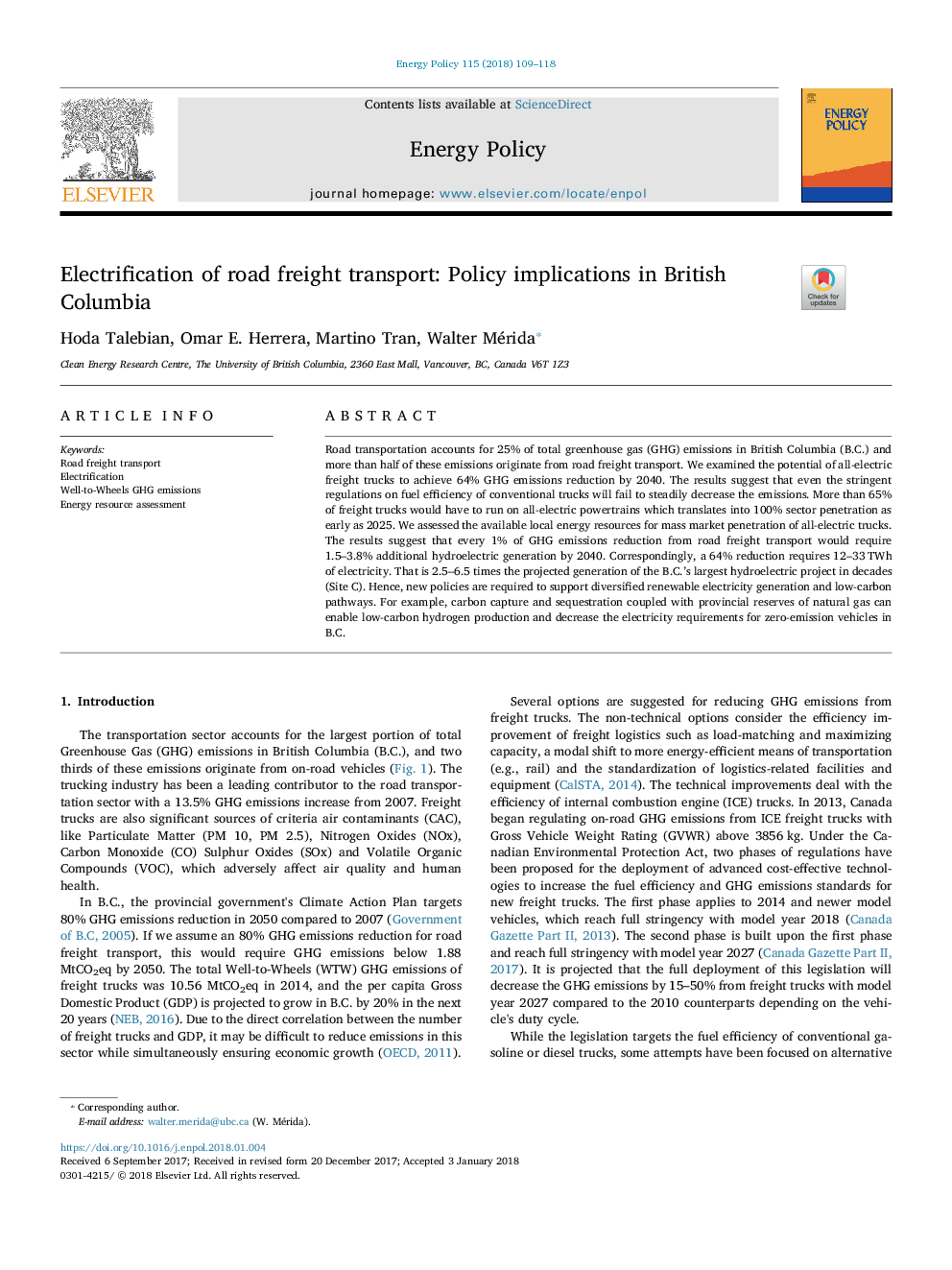ترجمه فارسی عنوان مقاله
الکتریکی حمل و نقل جاده ای: پیامدهای سیاست در بریتیش کلمبیا
عنوان انگلیسی
Electrification of road freight transport: Policy implications in British Columbia
| کد مقاله | سال انتشار | تعداد صفحات مقاله انگلیسی |
|---|---|---|
| 151392 | 2018 | 10 صفحه PDF |
منبع

Publisher : Elsevier - Science Direct (الزویر - ساینس دایرکت)
Journal : Energy Policy, Volume 115, April 2018, Pages 109-118
ترجمه کلمات کلیدی
حمل و نقل جاده ای الکتریکی انتشار گازهای گلخانه ای به خوبی به چرخ ها، ارزیابی منابع انرژی،
کلمات کلیدی انگلیسی
Road freight transport; Electrification; Well-to-Wheels GHG emissions; Energy resource assessment;

